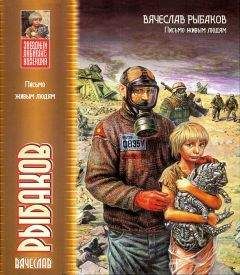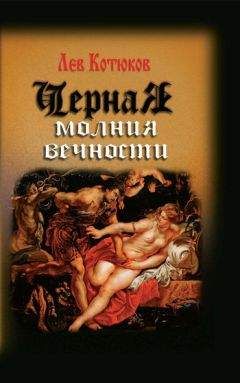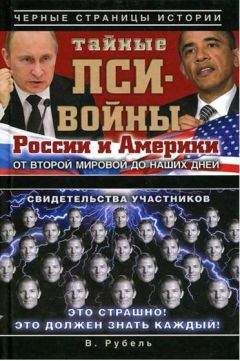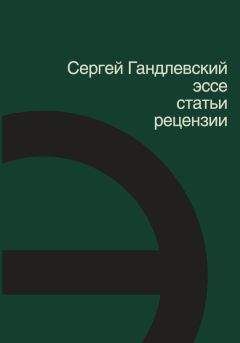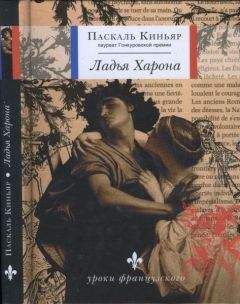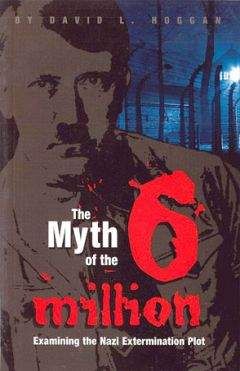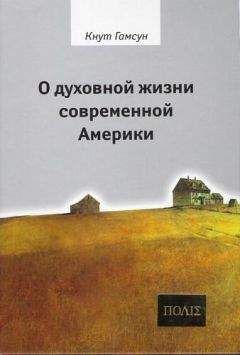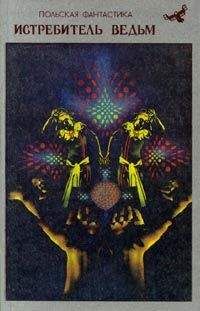Роллан Сейсенбаев - День, когда рухнул мир
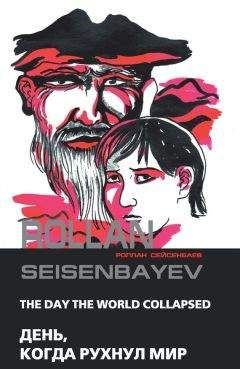
Все авторские права соблюдены. Напишите нам, если Вы не согласны.
Описание книги "День, когда рухнул мир"
Описание и краткое содержание "День, когда рухнул мир" читать бесплатно онлайн.
Роллан Сейсенбаев – признанный классик казахской литературы. Его романы, повести, рассказы издавались в самых престижных журналах и издательствах России, Англии, Америки, Германии, Италии, Венгрии, Польши, Японии и Кубы.
Роллан Сейсенбаев награжден «Золотым офицерским крестом» Польши, «Золотым Рыцарским Крестом» Венгрии, орденом «Дружбы» Кубы за заслуги перед литературой. Он является обладателем множества международных литературных премий.
Крупнейшие критики мира называют рассказы Роллана Сейсенбаева жемчужинами. Поистине Он уникальный Мастер слова.
Роллан Сейсенбаев стал своеобразным эталоном современной казахской интеллектуальной прозы.
I opened the gate of the fence and stepped onto the green, grassy carpet. I fanned out the flowers on the dark granite at the foot of the tall gravestone, out of which my father’s face gazed.
„Greetings, Father.“
„Greetings, my son, ainalain, at last you have come. Make yourself comfortable.“
„I dream about you, Father.“ „Does that trouble you?“
„No, it brings me joy, Dad. Darkhan and I visited Kant’s grave and we thought of you. Why are you silent, Father?“ „You say that you thought of me?“
„Yes, do you remember you told Darkhan about Konigsberg, eleven years ago?“
„Son, let my grandson know that I loved him more than my own life.“
„He came here to pay his respects to you before he started his military service.“
„I remember it, son. We, the dead, remember all.“
And still I could not rid myself of the thought that not even a single Soviet paper had recorded this event of global importance. Twenty-five years ago, people from one hundred countries had for the first time cut short the nuclear arms race in the atmosphere, in the cosmos arid under water and we, a country which calls itself the most humane in the world, is silent about this victory. Perhaps we fear something? Nothing was clear to me and my head was spinning.
Arid then I heard my father’s voice again. „Don’t be so upset, son. This is simply absent-mindedness. Or perhaps some coordinator of world events was sacked in keeping with the cuts in the state budget! I’m joking, but of course you’re right. The whole world should have commemorated this day.“
„It’s just so deplorable that no one remembered, Father! Besides, over the last twenty-five years people have demonstrated that they can trust each other. I think we should bring everyone together again – either in Nevada or in Semipalatinsk, to sign another agreement and once and for all to prohibit nuclear explosions – but this time underground ones.“
„How long will you stay here in your homeland?“
„Not for long. I’m going to Genghiztau tomorrow. I’ll pay my respects to the graves which are not being looked after. Farewell, Father!“
„Goodbye, son!“
Next morning I reached the mountains. I had not been there for thirty-five years. The gloomy, grey rocks compelled me to strain my memory in my futile efforts to restore the images of the past which kept slipping away. We rode with my friend. We found my grandparents’ graves but no matter how we tried, we could not locate where little Kenje had been buried.
The night was drawing in and we had to hurry to escape the captivity of the dark mountainous ravines. It was long after midnight when we descended into the valley which lay at the foothills of the Genghiztau where there was a lonely shepherd’s yurta where my friend’s younger sister and her husband lived.
They were expecting us. The table was set. The samovar hummed and the meat was cooking in a cauldron. We were exhausted, worn out after the day’s riding and all we wanted to do was to lie down and close our eyes. However, we were obliged to observe the customs of the steppe and so we tried to behave like real dzhigits.
While on the road, my friend explained the terrible misfortune which had befallen his sister and her husband, who was a good-hearted, simple and hard-working fellow. Their first-born, who was by now almost five had been born without arms. They had another two children who did not live long and died of leucosis. His sister had a fourth child who is also disabled – a freak of nature – the crown on his skull would not harden.
„When I think about her, my heart bleeds,“ he said finally. „After the last birth she went grey, she wanted to commit suicide, but her husband saved her. He’s a reliable fellow; bears all this misfortune bravely. I love him for his courageous faith and because he has not become embittered. Do yon know what I mean…?“
„Yes,“ I replied. „But perhaps we had better not bother them so late?“
„What are you saying? No, they’re always glad to have company.“
Thank God he did not grasp the underlying motive behind my question. I felt ashamed but I did not want to look into the face of yet one more tragedy amidst the untold number which had been our nation’s lot. I had had my fill of sorrow in my native land. In Djambul, I was shown the victims of the chemical industry – children with two heads, three arms and legs. To this day, I still remember those inhuman, disfigured faces, their mothers’ desperation and their fathers’ silent shame. I remembered the people from the Aral who die like flies from cancer of the oesophagus, the misfortune of the coal-producing Karaganda, of Mangishlak Peninsula with its oil pipes of Guryev, Baikonur, and of the copper and lead production of East Kazakhstan. These days one is hardly able to find any place where one can breathe clean air, drink clean water, walk through one’s native land without the fear of radiation, poisoning, infection.
Our excellent demographer showed me an article which cited the Kazakh population in 1913, 1932, 1938 and 1946. Millions died in the war, millions were killed, shot and died from hunger and devastation. Have any statistics included the losses caused by atomic bomb testing, by arbitrary industrialization on Kazakh territory, masterminded by bureaucrats? Not to mention the gradual disappearance and impoverishment– of the Kazakh language! This is yet another of the multitude of tragedies about which both phrase-mongers and campaigners, to this day, remain silent.
„Oh yes, we are slowly dying,“ said my friend’s sister, when we were sitting round the dinner table. „Here, we’ve been told to keep quiet about the underground tests which are being carried out. And it’s happening right under our feet! Where didn’t I write! But no one replied. I know that American women in the state of Nevada have sit-in demonstrations. They have asked us to support their movement with peaceful demonstrations near the Semipalatinsk proving ground, but it’s unlikely that we would be given permission to do this.“ She could not bear it; she was breathless from the rush of words and began to cry quietly. Her husband put his hand on her bony shoulder, trying to calm her. The boy without hands gazed at us vacantly. He drew closer to his mother and she immediately calmed down, understanding that he was hungry. She put a piece of meat into his mouth and fed him broth.
„You try and demonstrate near the proving ground – afterwards, you wouldn’t even find a trace of human bones. Everyone remembers what it was like in Alma-Ata in the winter, during those events. I am ready to die, I try to die, but what will happen to these unfortunate cripples? They’re innocent. I’ll be straight with you. You’re a writer. You know that our people are familiar with firing squads and arrests. Perhaps it’s better to die than to live like this! And where do we go for justice? It’s a long way to Moscow. Our youngest brother disappeared after the December events in Alma-Ata and we still don’t know whether he is alive or not…“
Suddenly, the new-born baby in the suspended cradle began to cry terribly. The five-year-old armless boy quickly climbed down off the stool and began to rock the cradle with his shoulder.
„A curse upon them!“ said the woman. „A curse upon them! When he starts to cry like that it means that they’ll soon start to explode their accursed bombs again. It’s as if they wait until we go to sleep. But he always senses the coming explosion. Can you hear how he’s sobbing?“
The little boy cried louder and louder.
„Aysha, feed him, perhaps he’s hungry,“ said the shepherd quietly and turned to us. „Please, you have hardly had anything to eat.“
There was a gentle apologetic smile upon his face, the courageous, weathered face. Aysha took her son into her arms. I was horrified. The little boy’s crown was almost wide-open and there something was pulsating, throbbing, alive. I rushed outside. A large, shaggy dog, who was getting under my feet, was good-naturedly barking at something in the distance. I walked across the dark yard and threw up round a corner. What is happening to us? What abyss are we falling into? Why are we bringing the end of the world closer, with our own hands?
At that moment, the earth trembled and we heard a muffled roar. The little one was right. They have started IT again. The little one was right.
A horse was tethered to the rail. He stood stock-still as if nothing special was happening in the world. But when I went up to him and stroked his body, the body of a working beast, accustomed to all kinds of hardships, he gratefully put his head on my shoulder; the horse breathed into my ear as if he was whispering some secret words known only to him.
In the mountains, a lone wolf began to howl.
Several barking dogs rushed towards the mountains.
In the sky, there were neither stars nor moon. Heavy clouds, hanging low over the foothills, increased the sensation of an oppressive darkness.
Pitch blackness. I could not see anything.
In the house, the boy incessantly cried. He must have gone mad even before he appeared into the world.
And I too felt that. I would go mad only from the thought of what was happening.
I was unable to close my eyes till the morning. And the house was silent. The master and mistress and my friend had fallen asleep, and the little one, next to whom my bed was laid out, had calmed down.
Memories, thoughts, like wild horses, trampled over me. In that deathly silence, I lay muttering fiercely and agrily:
„No, it won’t be my fate to lie quietly in my grave when I die. When I die, let them scatter my ashes over the steppe and in my native Genghiztau. That is my one and only request. As long as sorrow and suffering are my people’s fate, I will not rest. I will not rest!“
My eyes wide-open, I stared into the darkness; I had the sensation of being scattered through my native land by the wind, like warm ashes. The ashes – the remains of the body – but what of the soul? Where does my soul fly? Will it meet the soul of little Kenje in the universe? Will our souls merge? Tell me, Father.
Father, tell me, Father, why the death of several generations, the killing of the best sons and daughters of the nation does not open the eyes of the living, does not compel them to cherish the honour and glory of our homeland?
If only the blind would open their eyes! Where is their lost vision? The wailing of the millions of those who have disappeared, perished and been tormented, fills the land. And my hot ashes, cooled by the wind, will never know whether the blind will begin to see.
I shivered: two demented spots stared at me – the piercing eyes of the baby boy, one of the most unfortunate children on earth. When his eyes caught mine I let out a cry.
I stepped outside. Dawn was breaking. The uneasy stillness of the early morning light hung in the air. A light smoky cloud appeared over the distant spur of the granite hills of Delegen. The wind chased it somewhere eastwards.
I had been told that this was from the explosion. The hill is crumbling, soon all there will be left is dust… so I was told.
„Greetings, son!“ said my father. He unexpectedly appeared next to me and now hurriedly vanished, evaporating over the steppe. „Son, you can and you must walk barefoot over your native earth. This is your land, the land of your ancestors…“
„Then return my native land to me!“ I cried out. „As my father wished, I want to walk barefoot through the green grass, I want to drink the water from my lakes, I want to lie on the clean, good earth and look up at the clear, good sky. Do you hear me, my country?“
But it was silent. And I, a forty-two-year-old man, stood in the middle of the steppe and howled like the last remaining wolf of the Genghiztau before his death.
And once again the earth shook.
5–8 august, 1988 Semipalatinsk
MY OPINION
THE WORLD NEEDS TO BE RESTRUCTURED – LET US BEGIN WITH US
My people – fellows townsmen, my multinational Kazakhstan has so many physical and mental wounds that one cannot resist shuddering at simply imagining them and can hardly restrain the vision of horrors, shame and tragedy of the people. And, I wonder: which wound is the first we should talk about, which one should we be reminded of?
For many years, A– and H-bombs were tested in the Semipalatinsk region, my native land.
I was a boy of seven, when I was a witness of the first H-bomb explosion in the Chinghiz mountains. I remember my grandfather’s mournful face, myself repeating some words from the Koran. This moment, one of faith in salvation with the help of the Most High is still alive in me; I set great hopes on Him at the time, while being taken back into the rocky high country, in the awful deadly-still emptiness. The first line of my childhood’s unfinished verse began as follows: "The day the world collapsed".
The brightest streaks of the H-bomb explosion… I had never seen such terrible colors before. The inconsolable grief, sufferings and agonizing death of dear and near ones, the lies of the powers that be– all merge into a single tangle.
I am forty three now. On seeing the sufferings of Aral, Semipalatinsk, Dzhambul and Novy Uzen, the humiliated and insulted children’s souls are calling upon me to accept death together with them: I always feel like turning into an ant and dying under the feet of a hungry child. I plead guilty for the human mind’s deeds because great faith in science has converted us into obedient slaves. We have become hostages of progress. The tragedies of Hiroshima and Nagasaki, the devastation of the Aral area, forty-years-long nuclear tests on the Semipalatinsk proving ground – MADNESS.
Today, as always, we talk much, but do little. The great words-FREEDOM, EQUALITY, BROTHERHOOD – have ruthlessly been degraded and emasculated of their meaning. Over many decades there have flourished violence, boorishness, ignorance and self-seeking in this country, which proves that our talk about morals has, for many years, been just prattling. Can it really be true that a feeling of mercy has been exterminated from our everyday life? I remember, however, how my people joined their efforts in building houses, not only for ones who lost all their possessions in a fire, but also for those who hardly made both ends meet. I remember my grandfather having taken me to a mosque and asking me to give alms to the beggars. Then the government declared that we did not have beggars any more.
Great Pushkin’s verses come to my mind: "How in this cruel age I celebrated freedom, and begged for mercy towards those cast down." Pushkin’s behests are the moral demand of any epoch that embraces charity, compassion.
By the will of fate, and by the strength of my mind I always tried to stand aloof from notorious politics, as much as possible. I fervently defended the islet of my loneliness. I was happy that I was getting on in my effort, with difficulty though, believing that in the conditions of moral stagnation one’s active work is a long wayfarer’s cry in the wilderness.
The writer always tries to smooth the wrinkles of real life, of our society whose moral make-up has become intolerable. Our souls have coarsened, venom and envy boil in man. Callousness has wrapped up our home only to lay bare the awful gulf formed between the matter and mind. We have broken from the morals common to all mankind and have repudiated ethics. It is extremely difficult to come into one’s own in such a life. All of us are now having harsh times: a writer, a worker, a scholar, to mention just a few. We have been building socialism for 70-odd years now and have been standing in cues of the hungry.
Подписывайтесь на наши страницы в социальных сетях.
Будьте в курсе последних книжных новинок, комментируйте, обсуждайте. Мы ждём Вас!
Похожие книги на "День, когда рухнул мир"
Книги похожие на "День, когда рухнул мир" читать онлайн или скачать бесплатно полные версии.
Мы рекомендуем Вам зарегистрироваться либо войти на сайт под своим именем.
Отзывы о "Роллан Сейсенбаев - День, когда рухнул мир"
Отзывы читателей о книге "День, когда рухнул мир", комментарии и мнения людей о произведении.






